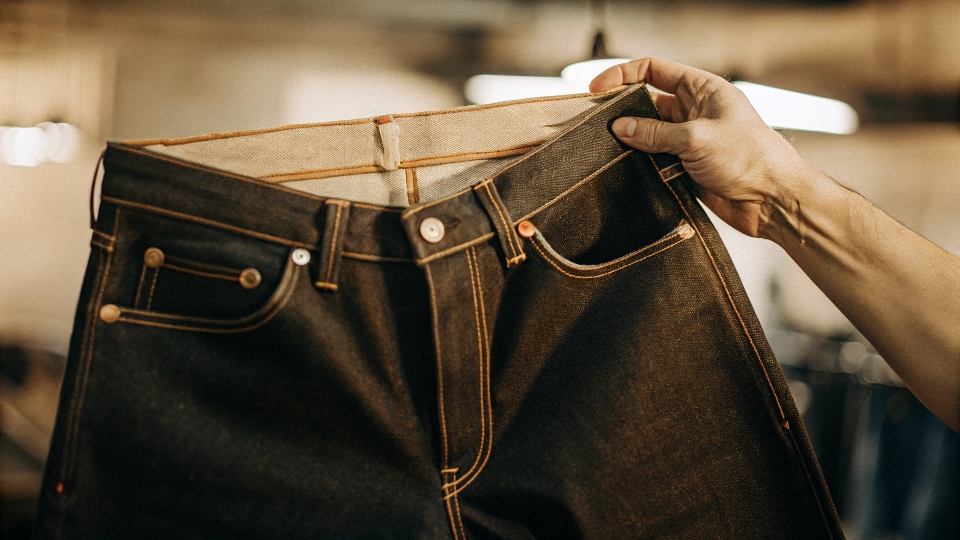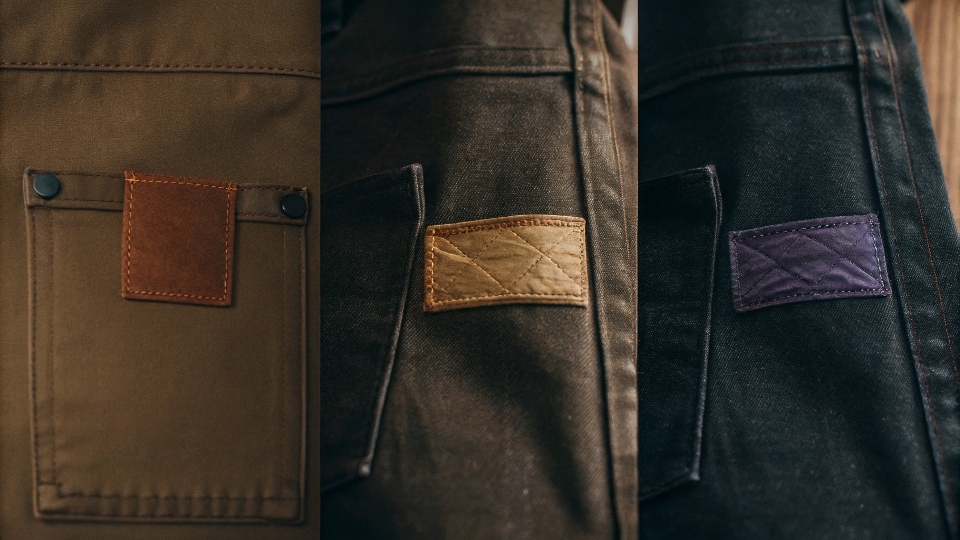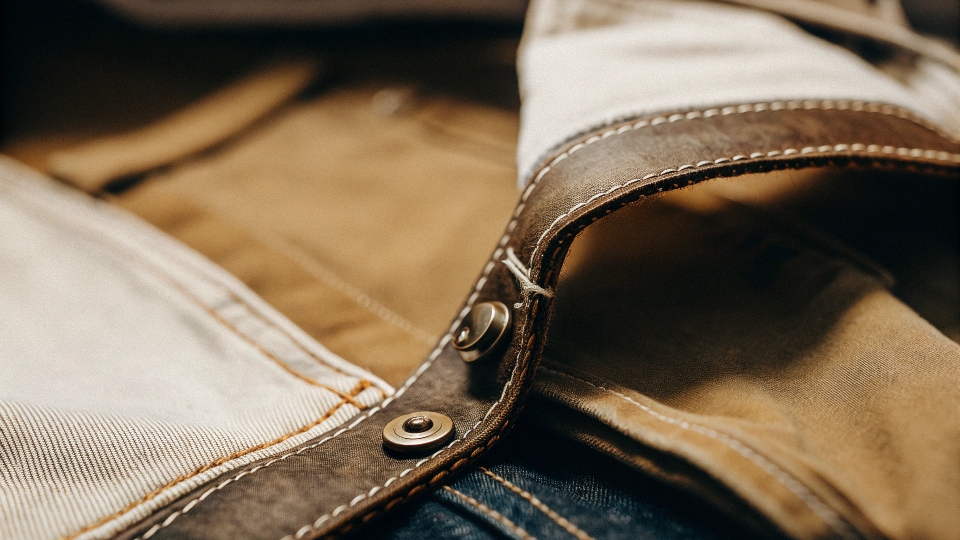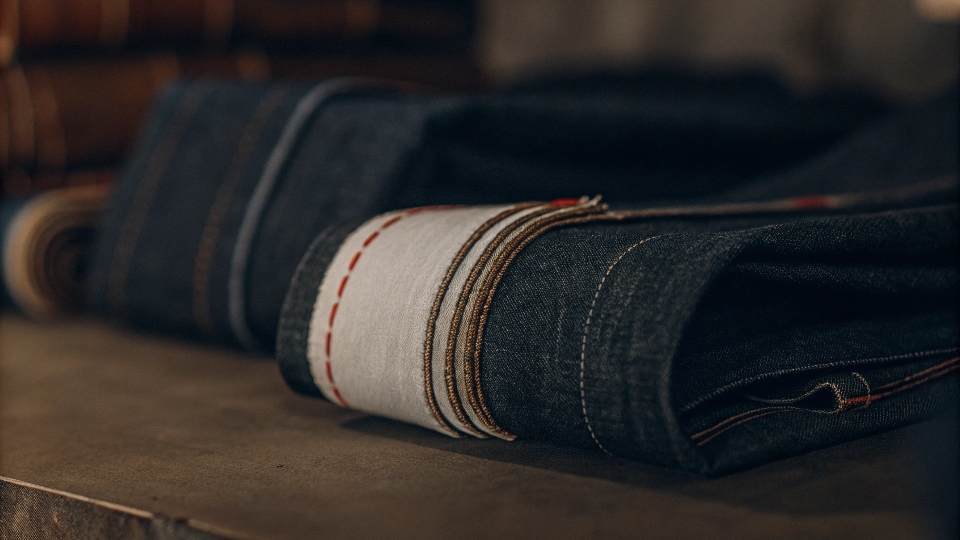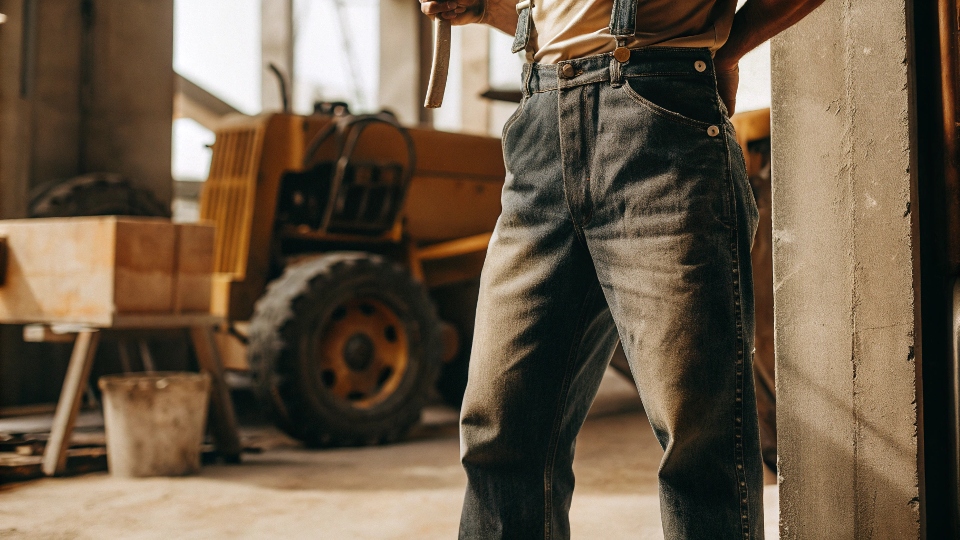You spend good money on jeans, hoping they'll last. But often they disappoint, stretching out or falling apart. It feels like a gamble you keep losing every time you buy a new pair.
The "best quality" jeans are those made with superior materials like selvedge1 or heavyweight denim, constructed with dense stitching2 and durable hardware. Quality isn't about the brand name alone; it's about measurable construction details you can see and feel.
After two decades running the DiZNEW denim factory, I can tell you that "quality" is one of the most misused words in fashion. Your list of brands is excellent because it shows you suspect the truth: quality means different things depending on the brand.
For some, it's about high-fashion design; for others, it's about pure, rugged durability. My job is to bring those different visions of quality to life. Let's look past the marketing and break down the real signs of a well-made pair of jeans.
Which is the best brand for jeans?
You scroll through endless brand options online, feeling overwhelmed. Every label claims to be the best, but who do you actually trust with your money for a truly great pair of jeans?
The "best" brand is personal. For streetwear luxury, brands like Amiri or Purple are top-tier. For heritage and value, Levi's is unmatched. The best brand for you is the one that masters the specific style you need, whether it's fashion, comfort, or durability.
The list of brands you provided is a perfect example of how varied the "best" can be. In my factory, we might produce a heavily distressed, embellished jean for a designer like Dean one day, and a classic, rigid jean the next.
They are both "quality" products, but they serve completely different purposes. It's helpful to group brands by their core mission to find the one that's best for you.
What is the Brand's Focus?
- Luxury Streetwear: This is where you find brands anmed Amiri, Purple Brand, Who Decides War, and Valabasas. Their quality is defined by their unique artistic vision. They use complex washing processes, hand-distressing, and bold designs. The price reflects the originality and brand status. They push the boundaries of what denim can be.
- American Heritage3: This category belongs to Levi's and Lee. Their quality is built on a legacy of durability and consistency. They invented the category. Their strength is in their classic fits and reliable, no-nonsense construction. They are the benchmark everyone else is measured against.
- Premium Contemporary4: AG Jeans and Denim Tears fit well here. They focus on perfecting modern fits and using incredibly comfortable, high-end fabrics from the best mills. Their quality is in the superior feel, clean washes, and sophisticated wearing experience.
| Category | Brands | Quality Focus | Price Point |
|---|---|---|---|
| Luxury Streetwear | Amiri, Purple, Who Decides War | Unique Design, Bold Washes, Brand Status | $$$$ |
| American Heritage | Levi's, Lee | Durability, Classic Fit, Consistency | $$ |
| Premium Contemporary | AG Jeans, Denim Tears | Comfort, Superior Fabric, Modern Fit | $$$ |
How to tell if jeans are high quality?
You're in the store, jeans in hand, trying to decide. The price is high, but will they last, or will they stretch out and fall apart after a few washes? You're afraid of being fooled by clever marketing.
Ignore the brand name and price tag. Instead, check three physical things: the feel of the fabric, the density of the stitching, and the sturdiness of the hardware. High-quality jeans feel substantial, have tight seams, and use strong metal zippers and buttons.
I teach my quality control inspectors to use their hands and eyes, not just to trust the labels. You can do the same thing and become your own expert in minutes. These are the three main areas where brands either invest in quality or try to save a few cents.
1. The Fabric Test
Pick up the denim. It should feel solid and have some weight to it. Even a lightweight summer jean should not feel flimsy or weak, like paper. Rub the fabric between your fingers. It should feel strong. If it's a stretch jean, pull on the fabric slightly and see if it snaps back quickly. This is called "recovery5," and good stretch denim has it. Bad stretch denim stays saggy.
2. The Stitching Inspection
Look at the seams, especially the long inseam on the leg and around the yoke on the back. The stitches should be tight, close together, and clean. More stitches per inch equals more strength. Look for "bar tacks," which are thick reinforcing stitches at stress points like the corners of the back pockets, the belt loops, and the crotch. These are signs of a jean built to last.
3. The Hardware Check
The metal parts are a huge giveaway. First, work the zipper. It should run smoothly, not snag. Look closely at the zipper pull; it will often have "YKK" stamped on it, which is the gold standard for reliable zippers. The main button on the waistband should feel solid, not tinny, and be securely attached.
What is the best quality material for jeans?
You hear experts talk about "selvedge" and "raw denim," but you are not sure what these terms really mean. You just want to choose the right fabric so your jeans look better with age, not worse.
The best quality material is widely considered to be selvedge denim, especially from mills in Japan or the historic Cone Mills in the USA. This fabric is denser, more durable, and fades more beautifully than standard denim.
As someone who sources denim from mills all over the world, fabric is my obsession. The type of cotton and the way it's woven make all the difference. "Selvedge" is the top of the mountain.
The name comes from "self-edge" because the fabric has a clean, finished edge that won't unravel. It’s made on old-fashioned shuttle looms that are slower but pack the cotton threads together much more tightly.
This creates a stronger fabric with a rich, uneven texture that produces amazing fades. Regular denim is made on modern projectile looms that are faster and cheaper but produce a less characterful fabric.
| Material Feature | What It Means | Why It's Good |
|---|---|---|
| Selvedge ID | Woven on a vintage shuttle loom. | Denser weave, more durable, clean edge inside the outseam. |
| Heavyweight (>14 oz) | More cotton per square yard of fabric. | Extremely tough, breaks in slowly, creates high-contrast fades. |
| Raw (Unwashed) | Denim that has not been washed or distressed. | Stiff at first, it molds perfectly to your body for a custom fit. |
| Long-Staple Cotton | The individual cotton fibers are longer. | Creates a yarn that is both stronger and softer, and less prone to pilling. |
What is the most durable brand of jeans?
You work hard and you play hard. You are tired of blowing out the knees or ripping the belt loops on your jeans. You need a pair that can truly take a beating and keep going.
For pure, workwear-level durability, the classic American brands like Levi's, Lee, and Wrangler are still the undisputed champions. Their entire reputation was built on making tough, long-lasting jeans for punishing jobs.
Durability is the reason jeans were invented in the first place. They were not fashion; they were protective equipment for miners, farmers, and cowboys. The heritage brands built their legacy on this foundation.
- Levi's: Their invention of the copper rivet to reinforce stress points was a revolution in clothing durability. A pair of their classic, rigid 501 jeans is still one of the toughest garments you can buy.
- Lee & Wrangler: These brands competed with Levi's by focusing on specific needs. They introduced stronger construction methods and different denim weaves, like Wrangler's "broken twill," to meet the demands of factory workers and rodeo riders.
While modern brands might offer more style or comfort, if your number one priority is a jean that will not quit, going back to the originals is almost always the right answer. They've had over 100 years to perfect the art of making denim that lasts.
Conclusion
The best jeans are not about a single brand. True quality comes from strong materials, careful construction, and a fit that serves your needs. Learn to spot these details, and you'll choose wisely every time.
-
Understanding selvedge denim can help you appreciate its durability and unique fading characteristics. ↩
-
Dense stitching is a key indicator of durability in jeans, ensuring they withstand wear and tear. ↩
-
Exploring American Heritage brands reveals a legacy of durability and classic style in denim. ↩
-
Premium Contemporary jeans focus on comfort and modern fits, perfect for today's fashion needs. ↩
-
Understanding recovery helps you choose jeans that maintain their shape and fit over time. ↩

